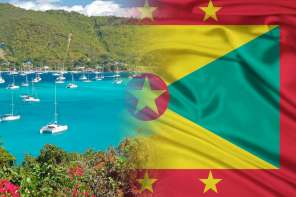Sustainable financing for the region’s energy sector came under the microscope in Suriname, where Caribbean Community (CARICOM) partners recently held a Stakeholder Validation workshop.
The CARICOM Secretariat, and Community Institution, the CARICOM Development Fund (CDF), in collaboration with the German Agency for International Cooperation (GIZ), hosted the workshop from July 25-26 in Paramaribo. The workshop reviewed the main design elements of a newly-proposed Credit Risk Abatement Facility (CRAF) for the energy sector.
To date, work on the CRAF project has engaged a broad spectrum of regional stakeholders in consultations that scoped and identified the major issues that are to be addressed by the Facility.
The CRAF responds to a major challenge that is linked to the significant unmet demand for energy efficiency (EE) and renewable energy (RE) within the region, namely the need for credit risk abatement to facilitate access to financing for related projects, especially for small and medium enterprises (SMEs).
Accordingly, the CDF and its implementing and strategic partners – CARICOM Secretariat, Caribbean Development Bank (CDB), and GIZ – are moving swiftly to finalise and implement the CRAF. This will be done within the second phase of the project, which will see the preparation of a detailed design, fund-raising, and the inception work required for launching and operationalising the CRAF, supported.
At this stage, therefore, this high-level forum of regional partners is expected to achieve consensus on the main design elements of the CRAF, to include: (i) the Credit Risk Instrument; (ii) a proposed Technical Assistance Facility for project preparation; and (iii) the Monitoring and Evaluation Framework for gauging performance.
The CRAF is an important emerging modality in the promotion of sustainable energy financing within CARICOM, and represents CDF’s substantive engagement with the CARICOM Energy Programme.
Phase 1 of the project, which ends with the validation of the CRAF Model and Design, is funded under the Renewable Energy and Energy Efficiency Technical Assistance (REETA) programme. The second phase of the project is expected to receive funding under the Technical Assistance Programme for Sustainable Energy in the Caribbean (TAPSEC).
The TAPSEC is funded by the European Union (EU) under the 11th European Development Fund (EDF-11), and co-funded with an additional financial allocation from the German Federal Ministry of Economic Cooperation and Development (BMZ). The programme is being implemented by the Deutsche Gesellschaft für Internationale Zusammenarbeit GmbH (GIZ), with support from the CARICOM Secretariat.
The main results that are to be delivered under the TAPSEC include: the establishment of innovative financing mechanisms for renewable energy and energy efficiency projects, with attention, in particular, to their accessibility to local and regional project developers.
This supports the programmes and actions within the CARICOM Secretariat that are focused on: (i) encouraging the use of financial risk mitigation instruments and blended public-private financing structures to reduce the cost of capital; and (ii) disseminating and promoting successful models and approaches for creating sustainable markets for renewable energy and energy efficiency.
The expectation is that CDF, along with the implementing and strategic partners for the CRAF, will leave Paramaribo satisfied that the main design elements of the Facility are finalised, thereby paving the way for the successful implementation of Phase 2 of the project.



